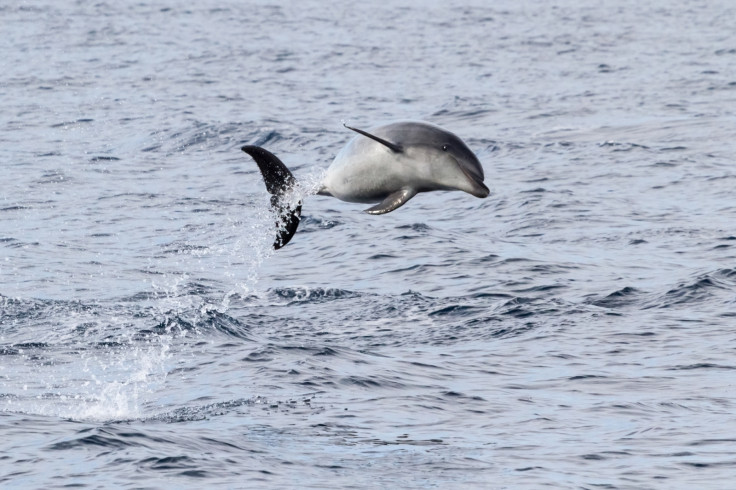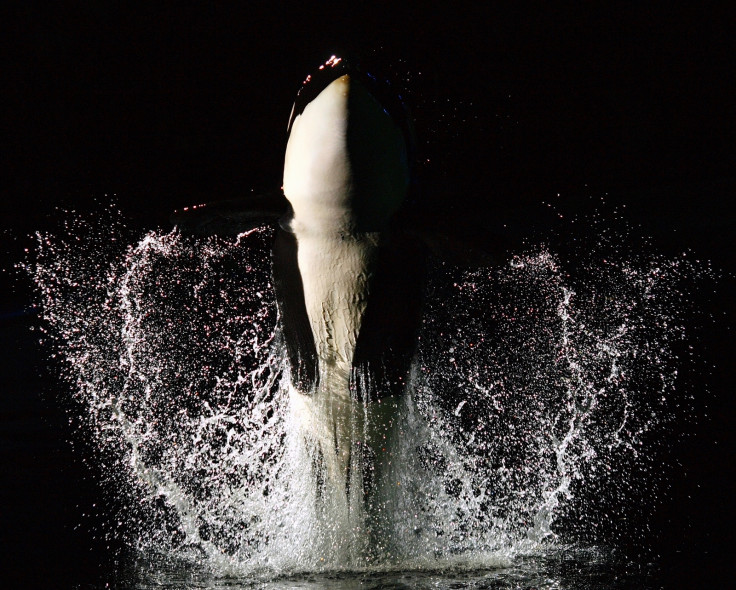If dolphins had evolved opposable thumbs, they would be ruling the world instead of humans
Dolphin and whale societies are about as sophisticated as our own. They just lack thumbs.
The sophisticated societies that whales and dolphins live in are as complex as human societies, a study has found. Their only downfall is the lack of opposable thumbs, making complex technology next to impossible for them to develop.
An extensive study comparing 90 species of dolphin, whale and porpoise – collectively known as cetaceans – found a remarkable level of social and cultural development among the animals. They talk to each other and have regional dialects. They even have the concept of naming.
"They have things called signature whistles, which identify individuals, and function more or less as names," study author Susanne Shultz of the University of Manchester told IBTimes UK.
"What's exciting about that is that these dolphins use these names to talk to each other when present, but also when they're not there."
That's not all. Dolphins and whales can build alliances and coalitions for mutual gain, hunt cooperatively and work with other species, such as humans. These are all included when summing up a species' so-called 'social repertoire'.
It's tough to make direct comparisons between species and groups of animals, but cetaceans can certainly give some of the most intelligent species on the planet a run for their money.
"Whales and dolphins are at least as complex as our closest relatives – the Great Apes – if not more so," Shultz said. But are they as complex as our own human societies?
"It's very hard to compare, but one of the things interesting about dolphins is that their societies are very complex and even human-like."
Some species, such as the bottlenose dolphin and the orca, stand out as the most complex cetacean cultures. But this could be because these are the ones we know the most about, Shultz cautions. Other cetaceans may have equally or more developed social and cultural lives we just haven't been able to study yet.
Some researchers have argued that because dolphin and whales brains are structured so differently from our own, it would make them inherently less able to achieve higher levels of cognition and social skills. This research shows that view to be false, the researchers say.

As well as their complex social structures, the size and nature of their brains was closely related to how many marine environments they had been able to conquer. Those with the larger brains were more successful in occupying very diverse habitats.
In fact, the main thing holding cetaceans back is not their brains, but their flippers, Shultz said. They lack the opposable thumb that has made apes such prolific tool-users.
"Cetaceans can't build things they can't really make tools because they don't have opposable thumbs. Dolphins use sponges as tools but just don't have hands and arms that allow them to do much else," Shultz said.
"It's quite hard to figure out the relative complexity of species' cultures when they can't show any technological sophistication. But in terms of behaviours, communication and social structure, they seem to be very, very advanced."
As well as appreciating how clever cetaceans really are, this research can help put into perspective what does – and doesn't – make humans unique.
"In order to move toward a more general theory of human behaviour, we need to understand what makes humans so different from other animals," Michael Muthukrishna, another author of the study and an economist at the London School of Economics, concluded.
The findings are published in a study in the journal Nature Ecology and Evolution.























